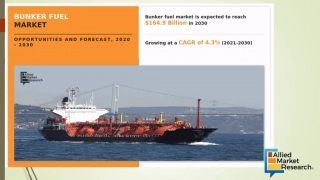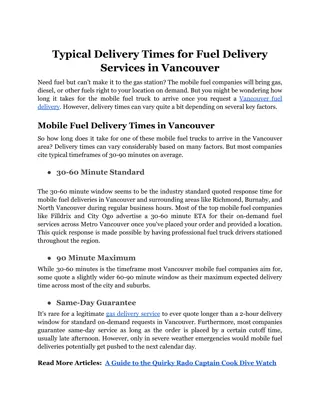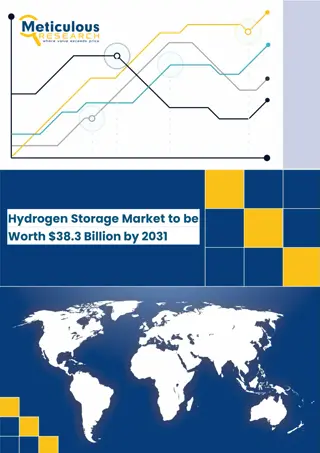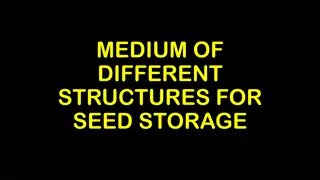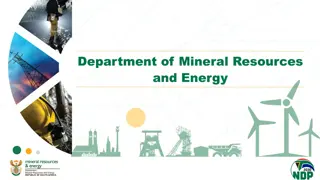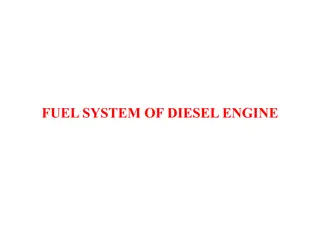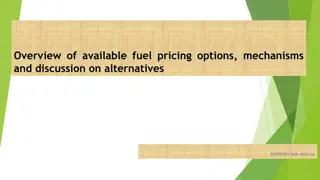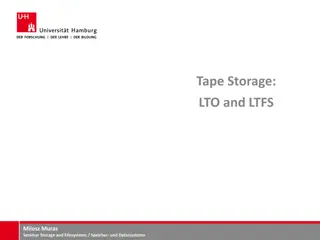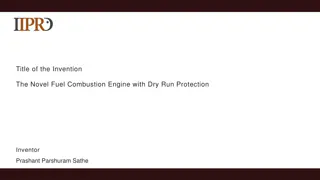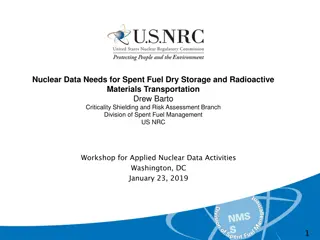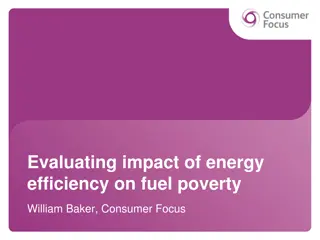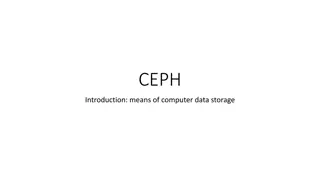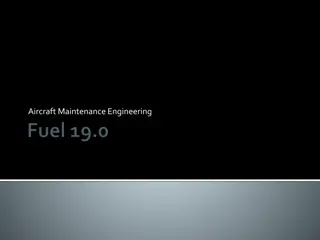Progress Update on Dry Fuel Storage Casks at VYNPS
Thirteen Holtec 100 Dry Fuel Storage Casks have been safely loaded and stored at VYNPS, with plans for a total of 58 casks across two Independent Spent Fuel Storage Installation pads. The transfer of spent fuel to Dry Cask Storage is scheduled to be completed by late 2020, following the issuance of a Certificate of Public Good by the Vermont Public Service Board. Construction of a second ISFSI pad is underway, with a 5 by 5 Cask Array design being implemented for optimum security and operational efficiency, while meeting all NRC licensing requirements.
Uploaded on Sep 11, 2024 | 3 Views
Download Presentation

Please find below an Image/Link to download the presentation.
The content on the website is provided AS IS for your information and personal use only. It may not be sold, licensed, or shared on other websites without obtaining consent from the author. Download presentation by click this link. If you encounter any issues during the download, it is possible that the publisher has removed the file from their server.
E N D
Presentation Transcript
Thirteen (13) Holtec 100 Dry Fuel Storage Casks are safely loaded and stored on the first of two (2) Independent Spent Fuel Storage Installation (ISFSI) pads. An additional forty-five (45) Dry Fuel Storage Casks for a total of fifty- eight (58) will be loaded and stored on the two pads. Capacity of the existing pad is thirty-six (36) Dry Fuel Storage Casks. Application for a second ISFSI pad was submitted on June 30, 2014 to the Vermont Public Service Board (PSB) seeking a Certificate of Public Good (CPG). The required capacity of the new pad is twenty-two (22) casks. Current plan is to transfer all spent fuel to Dry Cask Storage by 2020. 2
Proposed location of second pad Proposed location of second pad Existing ISFSI pad Existing ISFSI pad 3
The Spent Fuel Pool currently stores 2,996 spent fuel assemblies at VYNPS to be moved to Dry Cask Storage. The thirteen (13) Dry Cask Storage Casks contain 884 spent fuel assemblies. A total of 3,880* spent fuel assemblies are stored at VYNPS. * This includes one (1) fuel debris canister 4
CPG Issued by PSB Requested by Early May 2016 Commence Field Construction June 15, 2016 Concrete Pour October 2, 2017 2nd ISFSI Pad In Service November 15, 2017 Complete Transfer of Spent Fuel into Casks Late 2020 5
5 by 5 Cask Array results in a 76 by 93 pad design. Located approximately 30 west of the existing pad. Selected location provides optimum Security and pad access using existing infrastructure. Requires the removal of the existing North Warehouse and 175kW diesel generator as well as underground utility relocation. Extensive soil analyses concluded no potential seismic issues with the new pad location. Same Design Basis Earthquake parameters and Design Basis Flood elevations as existing approved pad were used. Design meets all NRC licensing requirements. 6
Proposed location of second pad Proposed location of second pad 2008 File Photo 7
Underground Storage (Holtec 100U) Cannot be constructed in Protected Area (PA) Outside of PA - Extensive Security Implications Above Ground Storage Evaluated Multiple Configurations and Locations Best Option - 5 by 5 Cask Array on Pad Adjacent to the Existing Pad 8
Existing 175 kW Diesel Generator to be replaced with 200 kW DG Barrier wall included in design to address NRC security requirements (10 CFR 73.55) Diesel Generator relocated/oriented to address NRC security requirements 9
5 by 5 cask pad design in Protected Area (PA) Optimum for all design, and compliance issues. Detailed pad design is complete. Extensive soil analyses concluded no potential seismic issues with the new pad location. Supplementary testimony filed with the Public Service Board on May 11, 2015. Certificate of Public Good (CPG) needed by early May 2016 to support current construction and cask loading schedule. Construction of new pad needs to be complete by November 2017 to support all fuel in Dry Cask Storage by 2020. Cost of extending project beyond 2020 is estimated at $1.7M/month. 10




